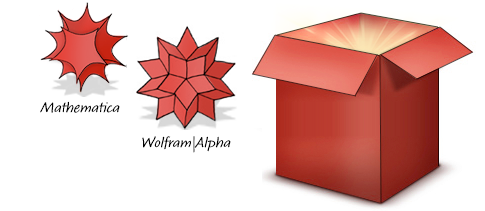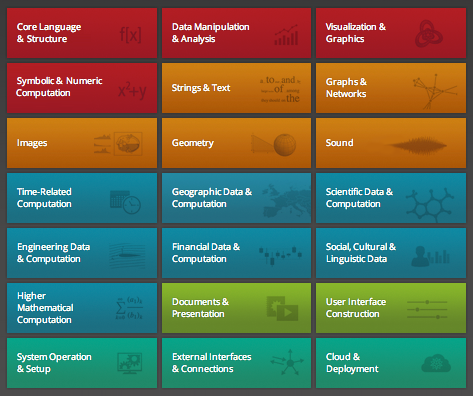‘Something very big is coming: our most important technology project yet,’ hints Stephen Wolfram
November 14, 2013

(Credit: Stephen Wolfram)
He said he and his team have figured out how to take all the things they have been working on in the context of Wolfram|Alpha, Mathematica, CDF and so on — computational knowledge, symbolic programming, algorithm automation, dynamic interactivity, natural language, computable documents, the cloud, connected devices, symbolic ontology, algorithm discovery — and all the technology they’ve built, to create something at a whole different level.
The “Wolfram Language”
A crucial building block of all this is what they are calling the Wolfram Language — a general-purpose knowledge-based language that covers all forms of computing, in a new way, he says.
“In the Wolfram Language, built right into the language, are capabilities for laying out graphs or doing image processing or creating user interfaces or whatever. Inside there’s a giant web of algorithms — by far the largest ever assembled, and many invented by us. And there are then thousands of carefully designed functions set up to use these algorithms to perform operations as automatically as possible … and including all the knowledge and data and algorithms that are built into Wolfram|Alpha.
“But now there’s even more. Because we’re also integrating right into the language So in a sense inside the Wolfram Language we have a whole computable model of the world. And it becomes trivial to write a program that makes use of the latest stock price, computes the next high tide, generates a street map, shows an image of a type of airplane, or a zillion other things.
“We’re also getting the free-form natural language of Wolfram|Alpha. So when we want to specify a date, or a place, or a song, we can do it just using natural language. And we can even start to build up programs with nothing more than natural language. …”

(Credit: Stephen Wolfram)
“In most languages there’s a sharp distinction between programs, and data, and the output of programs. Not so in the Wolfram Language. It’s all completely fluid. Data becomes algorithmic. Algorithms become data. There’s no distinction needed between code and data. And everything becomes both intrinsically scriptable, and intrinsically interactive. And there’s both a new level of interoperability, and a new level of modularity. …”
Universal platform
“Between the Wolfram Language — with all its built-in computation and knowledge, and ways to represent things — and our Universal Deployment System, we have a new kind of universal platform of incredible power. And part of the challenge now is to find the best ways to harness it.”
Wolfram says they will be releasing a series of products that support particular ways of using the Wolfram Engine and the Universal Platform:
- Wolfram Programming Cloud, that allows one to create Wolfram Language programs, then instantly deploy them in the cloud through an instant API, or a form-based app, or whatever.
- Wolfram Data Science Platform, that allows one to connect to all sorts of data sources, then use the kind of automation seen in Wolfram|Alpha Pro, then pick out and modify Wolfram Language programs to do data science — and then use CDF to set up reports to generate automatically, on a schedule, through an API, or whatever.
- Wolfram Publishing Platform that lets you create documents, then insert interactive elements using the Wolfram Language and its free-form linguistics — and then deploy the documents, on the web using technologies like CloudCDF, that instantly support interactivity in any web browser, or on mobile using the Wolfram Cloud App.
- Mathematica Online, in which a whole Mathematica session runs on the cloud through a web browser.
Sound intriguing … we’ll be watching for it! — Editor
(¯`*• Global Source and/or more resources at http://goo.gl/zvSV7 │ www.Future-Observatory.blogspot.com and on LinkeIn Group's "Becoming Aware of the Futures" at http://goo.gl/8qKBbK │ @SciCzar │ Point of Contact: www.linkedin.com/in/AndresAgostini
 Washington
Washington